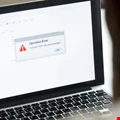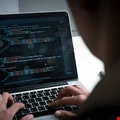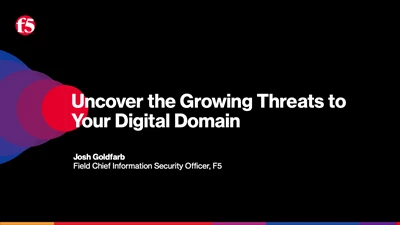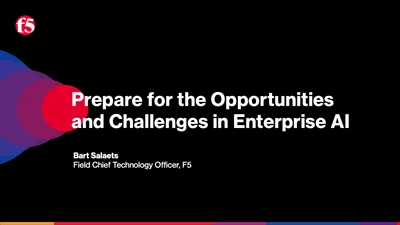Infosecurity News

International Taskforce Dismantles €460m Crypto Fraud Network
A €460m cryptocurrency fraud scheme has been disrupted by authorities, leading to five arrests in Spain

Iranian Cyber Threats Persist Despite Ceasefire, US Intelligence Warns
US Defense Industrial Base (DIB) companies are “at increased risk” of cyber-attacks from Iran-aligned hacking groups

Food Retailer Ahold Delhaize Discloses Data Breach Impacting 2.2 Million
Ahold Delhaize has confirmed a cyber-attack exposed personal data of over 2.2 million individuals in the US

Canada Bans Chinese CCTV Vendor Hikvision Over National Security Concerns
The ban on Hikvision products follows a national security review under the Investment Canada Act

Scattered Spider Actively Targeting Airlines, FBI Warns
The FBI alert comes amid several reported cyber incidents impacting North America-based airlines, including Hawaiian Airlines

IT Worker Jailed After Revenge Attack on Employer
An IT worker has been jailed for launching a cyber-attack after he was suspended at work

Glasgow City Council Warns of Parking Fine Scam
Glasgow City Council is alerting residents to a parking scam which could be linked to a recent cyber-incident

Hawaiian Airlines Hit by Cybersecurity Incident
The US airline said that incident was affecting some of its IT systems, but flights are continuing to operate safely and as scheduled

CitrixBleed 2 Vulnerability Exploited, Recalling Earlier CitrixBleed Fallout
This new CitrixBleed lookalike flaw is being exploited in the wild to gain initial access, according to ReliaQuest

MOVEit Transfer Systems Face Fresh Attack Risk Following Scanning Activity Surge
GreyNoise observed a surge in scanning activity targeting MOVEit Transfer systems since May 27, indicating the software could face renewed attacks

Hundreds of MCP Servers at Risk of RCE and Data Leaks
Misconfigured AI-linked MCP servers are exposing users to data breaches and remote code execution threats

Patient Death Linked to NHS Cyber-Attack
A patient’s death was linked to the 2024 ransomware attack on Synnovis, which disrupted NHS facilities

ClickFix Attacks Surge 517% in 2025
The ClickFix social engineering technique has become the second most common attack vector, behind only phishing, according to ESET research

French Authorities Arrest Four with Suspected Ties to Notorious BreachForums
The hackers are also suspected of being behind several cyber-attacks, including against the French Football Federation

Interpol Warns of Rapid Rise in Cybercrime on African Continent
Interpol claims cybercrime has risen sharply in Africa with cyber-offences accounting for a "medium-to-high" share of all crime

Supply Chain Incident Imperils Glasgow Council Services and Data
Glasgow City Council has warned of service disruption and potential data loss after a security incident

Hackers Use Open-Source Offensive Cyber Tools to Attack Financial Businesses in Africa
The threat actor used a combination of open-source and publicly available tools to establish their attack framework

NSA and CISA Urge Adoption of Memory Safe Languages for Safety
NSA and CISA are urging developers to adopt memory safe languages (MSLs) to combat vulnerabilities in software

Microsoft nOAuth Flaw Still Exposes SaaS Apps Two Years After Discovery
Semperis estimates that at least 15,000 enterprise SaaS applications are still vulnerable to a flaw discovered in 2023

SAP GUI Input History Found Vulnerable to Weak Encryption
Two SAP GUI vulnerabilities have been identified exposing sensitive data due to weak encryption in input history features



